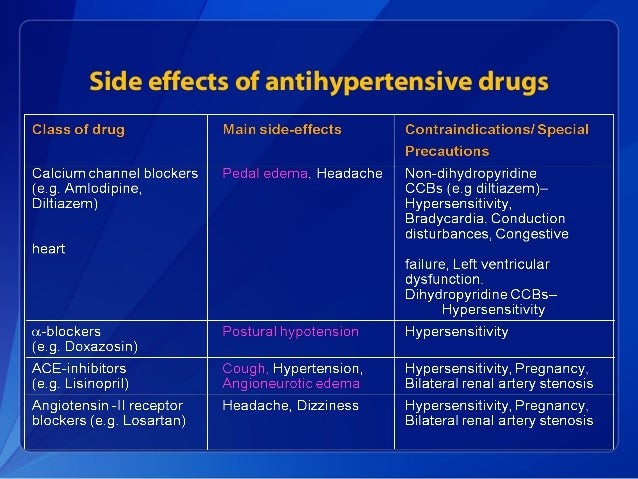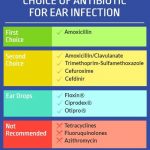
Contents
What Are the Side Effects of Telmisartan?
Telmisartan is an oral tablet sold under the brand name "Micardis," available as both the brand name and generic name. Telmisartan side effects include fatigue, nausea, headache, and others.
Telmisartan is an oral tablet sold under the brand name “Micardis” and as a generic. It comes in strengths of 20 mg, 40 mg, and 80 mg. The tablets lower high blood pressure, reduce the risks of heart attacks, strokes, and death from cardiac conditions.
Telmisartan belongs to a drug family called angiotensin receptor blockers (ARBs). It restricts angiotensin, a chemical that causes blood vessels to narrow, from working, resulting in blood vessels relaxing. The tablet also helps kidneys remove excess water and salt to lower blood pressure.
People who are 55 years or above can take telmisartan as an alternative for angiotensin-converting enzyme (ACE) inhibitors to prevent heart diseases.
Telmisartan is safe to use in moderate dosage. However, it can cause specific side effects.
Mild side effects
The most common side effects of telmisartan include:
- Fatigue
- Nausea
- Headache
- Dizziness
- Stomach issues like diarrhea
- Sore throat
- Flu-like symptoms like fever and body aches
- Back pain
- Muscle pains
- Sinus pain and congestion
These side effects are usually mild and may go away in a couple of days or weeks. However, if these symptoms persist, consult your doctor to diagnose any underlying health condition.
Severe side effects
Some people may experience more severe side effects that don’t go away in weeks. These can be life-threatening if you don’t seek medical attention. Some serious side effects include:
- Low Blood Pressure: Faintness and dizziness
- Kidney Disease : Swelling of feet, ankles, or hands and sudden weight gain
- Allergic Reaction : Swelling of face, tongue, or throat, trouble breathing, and skin rash
Keep in mind that every drug affects each person differently. The above side effects are general. If you’re about to take telmisartan, always discuss the possible side effects with your doctor beforehand.
Does Telmisartan interact with other medications?
Telmisartan has a higher chance of interacting with other medications, vitamin supplements, or herbs. Drug interactions alter how a drug works to treat or relieve a medical issue.
A healthcare professional usually manages your medications and prescribes only those that don’t interact. Some drugs that may interact with telmisartan include:
Blood pressure regulating drugs
Your body has a renin-angiotensin-aldosterone system to maintain blood pressure. Telmisartan affects this system to lower blood pressure when it is too high.
Therefore, you should avoid taking this drug with other blood pressure regulating medications, such as:
- Aliskiren: People with kidney diseases or diabetes should avoid taking aliskiren and telmisartan together.
- Angiotensin Receptor Blockers (ARBs): These include candesartan, eprosartan, irbesartan, losartan, olmesartan, valsartan, and azilsartan.
- Angiotensin-converting Enzyme (ACE) Inhibitors: These include benazepril, captopril, enalapril, fosinopril, lisinopril, moexipril, perindopril, quinapril, ramipril, and trandolapril.
Pain relief medications
Nonsteroidal anti-inflammatory drugs (NSAIDs), such as ibuprofen and naproxen, effectively relieve pain and inflammation. Telmisartan may interact with these drugs and increase risks for kidney problems, particularly in seniors.
If you already have kidney issues or take diuretics, consult your doctor before taking telmisartan.
Telmisartan may also interact with digoxin for heart conditions and lithium for psychiatric conditions. Consult your doctor for more information about drug interactions with telmisartan.
What are standard telmisartan warnings?
Telmisartan has several warnings for people with allergies, specific health conditions, and certain groups.
Allergic reactions
Telmisartan may cause several allergic symptoms, such as:
- Difficulty in breathing
- Swelling of the face, tongue, or throat
- Hives (raised, itchy rash)
Stop consuming the drug if you observe these allergic reactions after taking telmisartan.
People with health conditions
A clinical trial evaluated the safety of telmisartan in patients with different health conditions. Some patients experienced mild side effects, resulting in discontinuation of the drug.
Some of these side effects include influenza-like symptoms, myalgia, urinary tract infection, dyspepsia, dizziness, nausea, abdominal pain, fatigue, hypertension, headache, pain, coughing, chest pain, and peripheral edema.
Talk to your doctor to know more about telmisartan side effects based on your health condition.
Pregnant women
Medications that interact with the angiotensin-converting enzyme system can cause severe fetal and neonatal toxicity in pregnant women. These side effects mainly occur in the second and third trimesters. Even if you take telmisartan 40 mg during this period, it may end your pregnancy.
Tell your doctor if you’re trying to get pregnant or are already pregnant. The doctor may recommend telmisartan 40 mg only if the benefits outweigh the risks.
The effects of telmisartan on breastfeeding are unknown. Consult your doctor to make a better decision about whether you should take this drug while breastfeeding or not.
Seniors
Seniors usually metabolize drugs slowly. Start with a lower dose to avoid possible side effects of telmisartan.
Children
There are no studies of telmisartan side effects in children. Therefore, it’s better not to give this drug to children under 18.
What is the safe telmisartan dosage?
There is no standard telmisartan dosage. However, a safe telmisartan dosage for adults (18 years and above) is typically as follows:
- Starting Dose: Telmisartan 40 mg, taken orally once daily.
- Maintenance Dose: Telmisartan 20–80 mg, taken orally daily.
Your doctor will suggest you start with a lower dose and increase it gradually. The correct telmisartan dose, form, and frequency depend on factors such as age, your health condition, the severity of your condition, any underlying medical conditions, and your body’s reaction to the first dose.
Always start your telmisartan dosage with proper consultation with your doctor. If you experience any telmisartan side effects, contact your doctor immediately.
(Sources: Clinical Neuropsychopharmacology and Therapeutics: "Lithium Intoxication Associated with Angiotensin II Type 1 Receptor Blockers in Women"; DailyMed: "MICARDIS- telmisartan tablet"; National Library of Medicine: "Long-term effects of telmisartan on blood pressure, the renin-angiotensin-aldosterone system, and lipids in hypertensive patients," "The effect of telmisartan on the steady-state pharmacokinetics of digoxin in healthy male volunteers"; U.S. National Library of Medicine: "A Study to Evaluate the Drug-drug Interaction Between Telmisartan, Amlodipine and Hydrochlorothiazide.")


